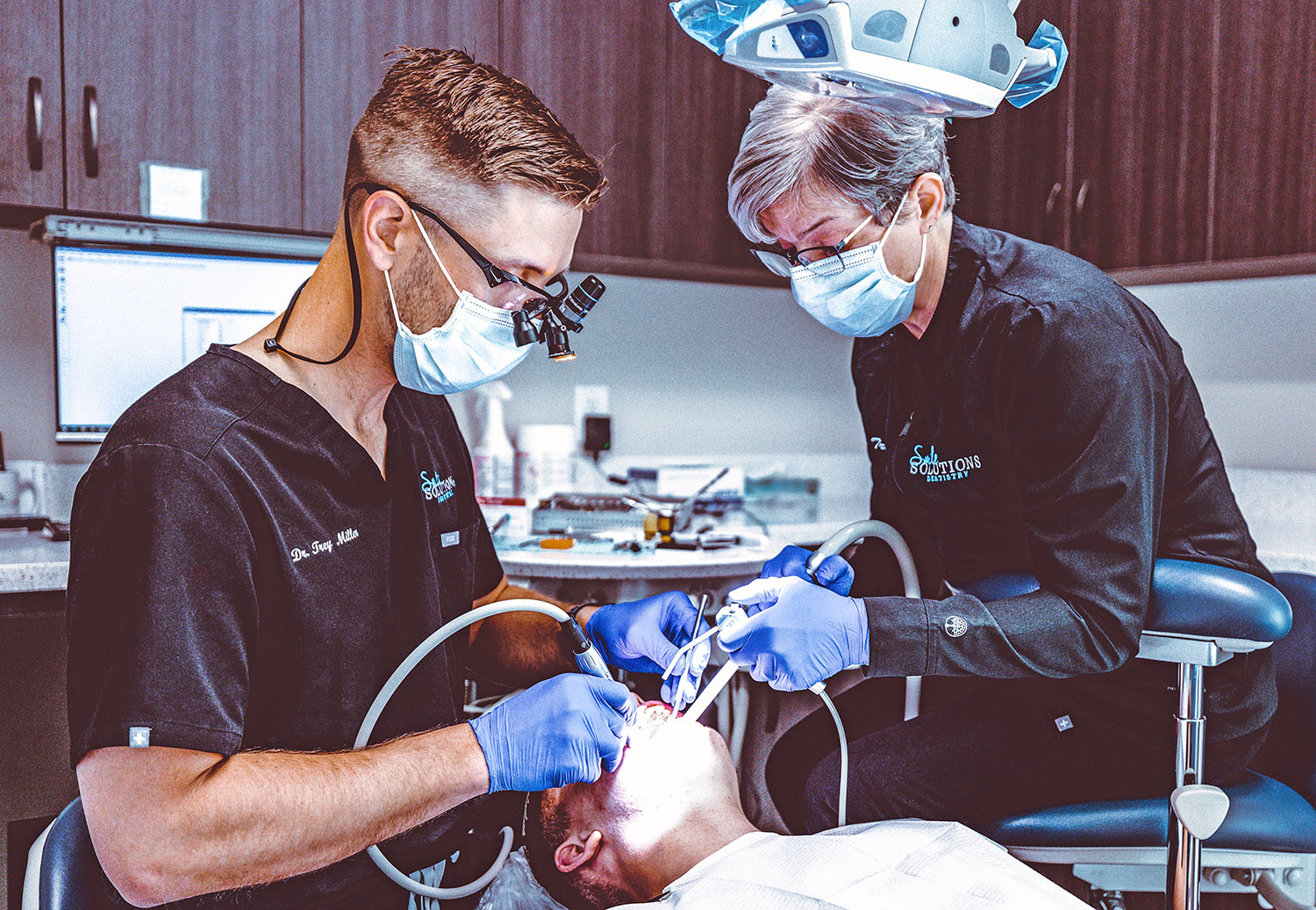5 Signs You May Need Your Wisdom Teeth Extracted
Wisdom teeth—the third set of molars that form at the back of the mouth—typically break through the gum at around 18 years of age. It’s typical for people to experience at least one impacted wisdom tooth, meaning the tooth (or teeth) don’t have enough space to grow naturally. By having your wisdom teeth removed—either because of an impaction, or another issue—you can ensure they don’t damage the surrounding teeth and bones.
The pain and discomfort of an impacted tooth can be quite unpleasant. If gone untreated, impacted (or partially impacted) wisdom teeth can lead to infection, development of cysts, and even tumors—which have the potential to lead to unwanted, long lasting, problems and complications.
Below are some signs that you may need one of more of your wisdom teeth removed:
1. Pain
2. Inflamed Gums
3. Headaches
4. Bad Breath
5. Trouble Opening Jaw
1. Pain
This is probably the most obvious indicator of wisdom teeth trouble, but we as humans like to find ways to fool ourselves into thinking “it’s probably nothing”. Each year, approximately 5 million Americans get their wisdom teeth removed, which tells us that it’s usually “not in our heads”. If you have recurring pain, it might be time to have your dentist take a look at your wisdom teeth.
2. Inflamed Gums
Sometimes when wisdom teeth begin to push through, they can create a fold or flap of gum tissue next to the tooth. This gum tissue can trap tiny particles of food and bacteria. Tissue around the teeth can become inflamed, making it hard to clean. This is called pericoronitis.
3. Headaches
As wisdom teeth start to grow, they may cause other teeth to move and shift to create space for them. Sometimes this can cause headaches. These unnatural “shifts” that take place in your mouth can cause swelling, and even result in a person changing his or her biting patterns to compensate for the pain. This can bring tension to the ear muscles and neck. NSAIDs (Advil) can bring temporary relief, but if it’s an impacted tooth that’s causing the pain, it will only return. It might be time to consider an extraction.
4. Bad Breath
Yes, believe it or not, impacted teeth can cause bad breath. If you have bad breath that just doesn’t seem to go away, you may have an infection in a tooth or in your gums. It might be time to visit your dentist to determine whether you have a dental infection. Don’t wait until it’s an emergency to have it looked at.
5. Trouble Opening Jaw
This seems to be another common issue we see in patients with impacted wisdom teeth. When infection starts to set in, it can cause pain and swelling, which in turn makes it difficult to open the jaw. If you have jaw pain, it may be time to see your dentist.
Complications
When impacted (or partially-impacted) wisdom teeth go untreated, they can cause numerous problems within the mouth, including:
• Damage to Other Teeth
• Cysts
• Decay
• Gum Disease
Damage to Other Teeth
When a wisdom tooth pushes against a tooth, it may damage other teeth, or increase the risk of infection. This may require orthodontic treatment to straighten other teeth.
Cysts
Cysts aren’t a joke. A “dental cyst” can damage the jawbone, teeth, and nerves, and have to be surgically removed; a procedure that’s typically more uncomfortable than having a wisdom tooth removed.
Decay
W Impacted (or partially-impacted) wisdom teeth seem to be at higher risk of tooth decay than other teeth. This is probably due to the fact that wisdom teeth are harder to clean, so they’re more susceptible to decay.
Gum Disease
Impacted and partially-impacted teeth are difficult to clean, and this neglect can increase the risk of developing an inflammatory gum condition called pericoronitis (inflammation of the gum tissue).
Conclusion
Unfortunately, we can’t keep an impaction from occurring, but by maintaining regular dental appointments for checkups and cleaning, you allow your dentist to monitor the progress and emergence of your wisdom teeth. Regular updated dental X-rays will also help your dentist to be proactive, and develop the best course of maintenance or treatment.




